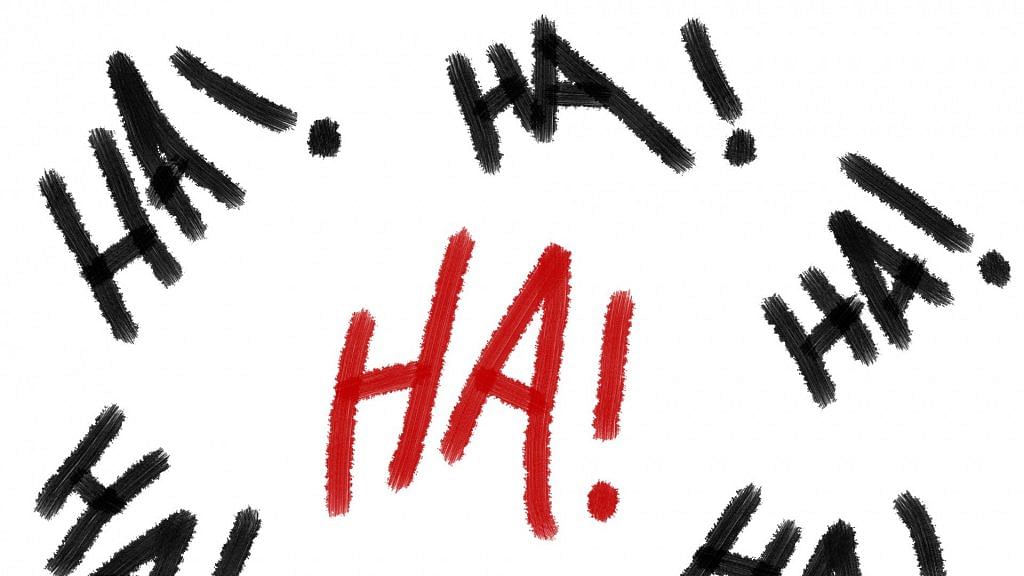Thank you dear subscribers, we are overwhelmed with your response.
Your Turn is a unique section from ThePrint featuring points of view from its subscribers. If you are a subscriber, have a point of view, please send it to us. If not, do subscribe here: https://theprint.in/
As a child, I remember watching “Dirty Jobs” on Discovery channel with the fascination of, well, a child. They covered some of the most bizarre and messy jobs around the world including that of an Avian Vomitologist and a Chick Sexer. The reason I bring this up from the deepest and darkest corners of my memory is because I have a job to nominate for the 2021 edition of Dirty Jobs. It is the profession of Comedy.
Comedy was largely unknown as a profession for a long time and artists who could be labelled anything but successful went around with their “items” to perform in all sorts of gatherings irrespective of the occasion. Then the turn of the millennium ushered in a new era where comedy was seen as harmless. A time-tested method of branding something as benign is to get politicians or cricketers to do its bidding. Comedy back then was being judged by someone who had not only been a cricketer but was also a politician. Although it is hard to remember which party he belonged to back then. This honeymoon period was rather short lived as the turn of the decade brought in this beast which couldn’t be tamed known as cheap internet. The internet brought millions of eyeballs to comedy and anyone who was called funny in school was now on YouTube. Comedy was not a funny business anymore.
There aren’t many areas where the new age liberals and conservatives think and act alike. Two exceptions come to mind – 1) Their usage of Twitter and 2) Their contempt for comedy. Each faction will quickly hand you a laundry list of topics and tropes that are “off-limit”. And each group also has their preferred way of punishment if you happen to forget your commandments. One group’s methods are targeted and precise: First, there will be an assessment of the affiliations of the comic – Gender, religion, caste etc. Then, your affiliations will be invoked with a rather imaginative buffet of unpleasant adjectives in the comment section. Most comics don’t have the money to afford personal security so if your venue is visited by a group of “social workers” then God help you. Any criticism of the government by a comedian is swiftly acted upon as comedians have a reputation of speaking the truth. And finally, to add some icing to the cake, they may choose to throw in an FIR.
The second group has only one form of punishment – death by “isms”. You just published a funny bit on the internet and it is seemingly doing well, until… Until the “isms” start pouring in the comment section. Of course, racism, casteism, classism, sexism should have never existed in society. But the way these labels are meted out on Twitter are neither methodic nor precise. Take the example of poor Gene Weingarten, a Washington Post humorist who got up on the wrong side of his dining table one day and decided to hate on Indian food. His recent column on food he hates was, to say the least, not digested well by Twitterati. He was clearly ill informed about the range and depth of cuisines of the subcontinent but to his defense, his knowledge of “Indian food” comes from the Indian restaurants in the US, which are mediocre at best and vexatiously insipid at worst. His humour may have been ‘in bad taste’ but to call it racism is a stretch.
Vir Das almost got cancelled for joking being cancelled. Kevin Hart lost his opportunity to host the Oscars and in turn, the Oscars lost their opportunity to stay relevant, all due to a decade old joke he did. A decade ago, the BJP was organising protests when petrol price touched the half-century mark. The point is, a decade is a long time for people to change. For a comedian who is already perennially insecure of becoming obsolete and irrelevant due to natural causes, the threat of imposed obsolescence and irrelevance brought by cancel culture is nothing less than a blow below the belt.
Comedians are expected to be subservient by one group, while the other group expects them to be irreproachable. Many observers of this industry profess the audience to grow a thick skin but I think that approach is inefficient. In my opinion, it is the comics who should grow a thick skin so they can survive attacks by hooligans and hashtags with the same resilience. In today’s time, having an opinion in itself is risky but having opinions and expressing them for a living is downright perilous. And therefore, I think comedy should be included in Dirty Jobs.
These pieces are being published as they have been received – they have not been edited/fact-checked by ThePrint.
